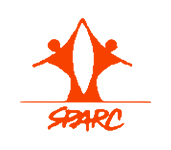Roof Over Our Heads (ROOH) Challenge
A Crucible forChange
Are you passionate about urban resilience and ready to showcase your creativity to shape the future of informal communities?
Roof overhead is a global campaign that seeks to produce resilient homes by building capacities of women’s collectives and their vulnerable community neighbourhood to assess the vulnerability of their homes to extreme weather which support and assistance of designers, contractors, construction, material providers, finance providers, and city officials and Mayors
This challenge is to bring to the attention of young university students to explore the potential role that they can play in participating in the challenges that vulnerable neighbourhoods and the women who live their face in Cities, especially in the global South weather presence is presently invisible illegal, and where, despite these challenges, they designed construct and finance their homes with what they know
So we present a design challenge to you to use the knowledge that you have, or you can explore the documentation that we have already produced to make recommendations to produce resilient homes that can with stand extreme weather, conditions of heat, wind, and water
The ROOH Labs in Phase 1 have successfully documented 17 informal settlements spread across 9 cities in India across five climate zones. The challenge at hand invites participants to design an incremental upgrade or a retrofitting concept for a dwelling unit in an informal settlement situated in any one of the climate zones, tailor the design to suit a particular family and location using comprehensive climate and contextual information sourced from the Phase 1 documentation conducted under ROOH Labs that will be shared as Challenge Components.
The proposed solution should incorporate improved construction techniques using existing local materials, or shall suggest alternative building materials that are affordable, locally accessible, adaptable, and acceptable to the community. The design should aim to enhance resilience, sustainability and liveability within the chosen context.
The challenge is entirely VIRTUAL.
Eligibility Criteria
- There is no entrance fee for participation in this challenge.
- Participants from both local and international locations are invited to address housing challenges. There are no restrictions on the country of origin for participants.
- The challenge is exclusively open for students of various age groups from all academic backgrounds including Architecture, Design, Planning, Engineering, Social Science, Humanitarian and Development Studies currently pursuing undergraduate, postgraduate or PhD programs.
- Participation can be either as an Individual or as a part of a Group with not more than 10 Members.
- Inter- university and Inter- disciplinary collaboration are encouraged irrespective of your affiliations.
- Each participant may compete either as an individual or as a member of one group only throughout the challenge.
- Proof of student status is essential to be eligible
- Multiple entries are not permitted.
- Practicing professionals are not eligible to participate.
Up for the Challenge?
- Confirmation email with Unique Identification Number (UID) will be sent post registration.
- For submission, if the entry is for an individual, only the UID should be provided. If the entry is for a group, both the group name and the UID should be provided.
To transform hypothetical and theoretical ideas into tangible solutions for communities living in informal settlements in India across climatic zones, with a special focus on amplifying the voices of women within these communities and addressing their needs.
Aim of the Challenge
Objective of the Challenge
- Foster Multidisciplinary Collaboration – Unite students from Architecture, Engineering, Environmental Studies, and Social Sciences to create comprehensive housing solutions.
- Develop Practical Solutions – Design context-specific housing that addresses Heat, Wind, and Rain challenges in informal settlements with a focus on climate resilience and affordability.
- Bridge Theory and Practice – Turn theoretical knowledge into practical designs that benefit vulnerable urban communities and enhance climate resilience.
- Integrate Local Knowledge – Use local techniques and knowledge from the ROOH team’s research in India to ensure sustainable and effective housing interventions.
- Empower Women and Artisans – Highlight and empower the role of women, artisans, and skilled laborers in community development through targeted housing upgrades.
The winning design will serve as a practical blueprint for resilient housing solutions tailored to the unique challenges of different climate zones, empowering local communities and fostering sustainable development.
Outcome of the Challenge
Challenge Components
Hot and Dry – Surat City
Gujrat, India
Warm and Humid – Bhubaneshwar City
Odisha, India
Warm and Humid – Paradeep City
Odisha, India
Temperate – Bengaluru City
Karnataka, India
Cold – Gangtok City
Sikkim, India
Delve into the data (Challenge Components) provided by the ROOH Team, including 3D models, plans, sections, photos, documentation, and analysis. Focus on a specific dwelling unit and its settlement from the data provided. Utilize this information to gain insights into the context, challenges, aspirations, and material choices of the dwelling unit.
Here’s how you can engage with the data:
- Analyze 3D models, plans, sections, and photos provided by the ROOH Team.
- Dive into documentation and analysis to understand the nuances of the chosen dwelling unit.
- Gain insights into historical context, challenges faced, aspirations of residents, and material preferences.
Challange Prizes

1st Winner

2nd Winner

3rd Winner
- Selected entries will have the opportunity to collaborate with global partners in the ROOH campaign and engage with international organizations active in the climate landscape.
- Winning entries will be showcased at COP 29 in Baku during the Roof Over Our Heads (ROOH) Session, with the winners receiving official acknowledgment.
- All award-winning entries will be showcased on our website online for at least one year.
- All participants will receive a certificate of participation.
Timeline
Registration begins
Announce the ROOH Challenge Open
Announce the ROOH Challenge Open
Deadline for submission of Challenge Entries
Announcement of the Results and Winners
FAQs
A unique ID is a 12-digit alphanumeric code (e.g., ROOH_2400001) that will be sent to participants via their registered email after registration. This unique ID serves as a crucial identifier for participants, whether they are applying individually or as part of a group. All submissions must include a unique ID in the filename for all submissions, as well as within the report and presentation deliverables. For group participants, the group name should be included alongside the unique ID.

Organiser
The Society for the Promotion of Area Resource Centers (SPARC) has been working on issues of urban housing and infrastructure in partnership with two community-based organizations- the National Slum Dwellers Federation and Mahila Milan. Together, we are known as the Alliance. Today, the Alliance works to produce collective solutions for affordable housing and sanitation in over 58 cities and 9 states in India. The Indian Alliance is also a founding member of Slum Dwellers International (SDI), a transnational network of the urban poor in over 30 countries.
